This made euthanizing her all the more difficult, but it was the right action. Even if state and federal law didn’t stipulate that birds missing the wing above the wrist must be euthanized, it’s just not fair to a bird to keep it in captivity with only one wing. If the bird has the wing at least down to the wrist, it has some limited flight capability—not enough for release but enough to sate its desire, its need, for flight within the safe confines of a flight pen. To keep a bird like a merlin, accustomed to darting, diving flight, in captivity with no flight capability at all is cruel beyond words.
Additionally, since the amputation site had already scabbed over when she came in, we really had no way of knowing just how much crud and potential infection lay behind that wound—or how much pain she was actually in. Wild animals hide their pain extremely well—it’s a survival mechanism. We could have done antibiotics for potential infection, and there are bird-safe pain meds. But none of that addressed the main issue: she had only one wing, which not only rendered her flightless, it also threw her balance off. This brought us full circle back to the cruelty of keeping a flightless bird in captivity. And so we euthanized—not without regret but knowing it was the best option, the kindest option, for the bird.
The BEST way to prevent cats from preying on birds is to KEEP THE CATS INDOORS. As I’ve said repeatedly, this is not only safer for the birds, it’s safer for the cats. They’re not exposed to predators themselves, such as coyotes and great horned owls; they’re safe from dog attacks; they’re less likely to have ear mites, fleas, abscesses from fights, worms, etc.; they’re not at risk of being run over by cars or attacked by vicious cretins masquerading as humans…To give you a little perspective, the average lifespan of an outdoor cat is about four years; the average lifespan of an indoor cat is about 18 years.
If you’re not willing to be a responsible cat owner and keep your “darling” inside (and I would seriously debate your actual affection for an animal you willingly left in harm’s way), my advice is to learn to grit your teeth and turn your head as your furry little murderer wipes out the local bird population—by allowing your cat outdoors, you enable his/her predation, so don’t pretend to be sorry about it when you do nothing to prevent it. (And before I’m accused of hating cats, let me be clear on this: I have cats of my own whom I love dearly. They’re indoor-only and are quite happy with the arrangement—as is the local wildlife. Two of my cats are seniors, at 16 and 13 years, respectively, and one is nearly three. If they had been allowed to roam freely, chances are the senior moggies would be long-dead and the youngster would be rapidly approaching the end of her lifespan.)
The gray squirrels are in pre-release caging now and are mostly self-feeding. They’re still getting formula once daily, in a dish now, though. They’ve also become quite camera-shy, so try as I did, I couldn’t snag even one photo of them this week. Maybe next week when they’ve settled into their new digs a bit more…
The red-tailed hawk continues to recuperate nicely and will be due for another x-ray in about a week and a half. He’s such a good patient—so calm and accepting of his situation as that wing heals. He sat patiently on his perch in the floor of the rehab bathroom while his box was being cleaned—no histrionics, no wild displays, just a model patient. If not for the need to limit motion in that wing for another couple of weeks, I’d just let him sit on the open perch in the rehab bathroom. He’s that good a bird.
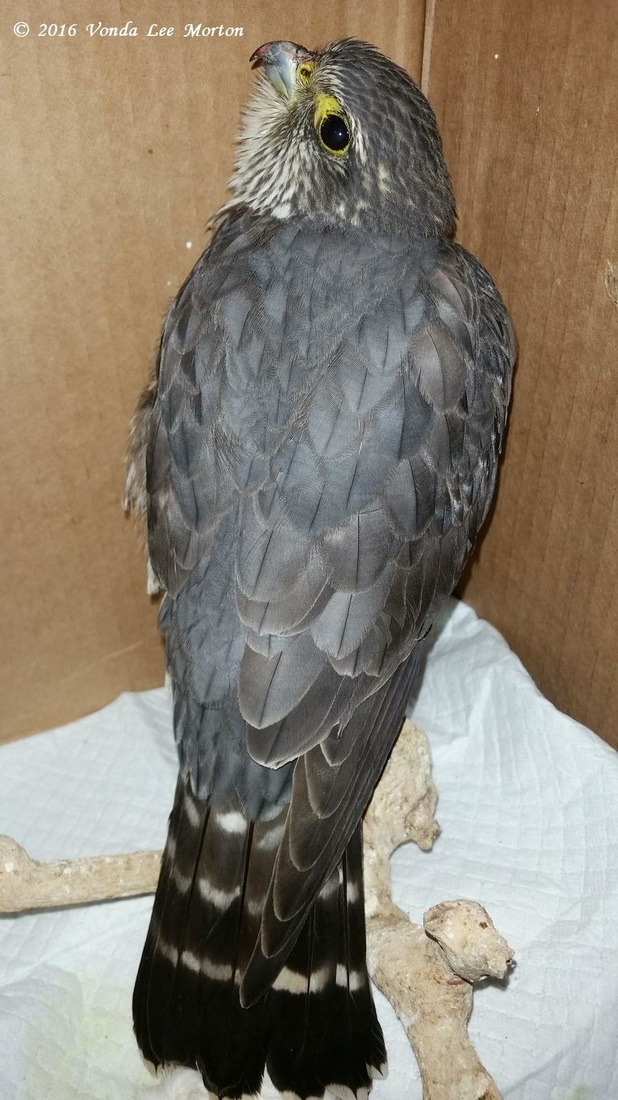
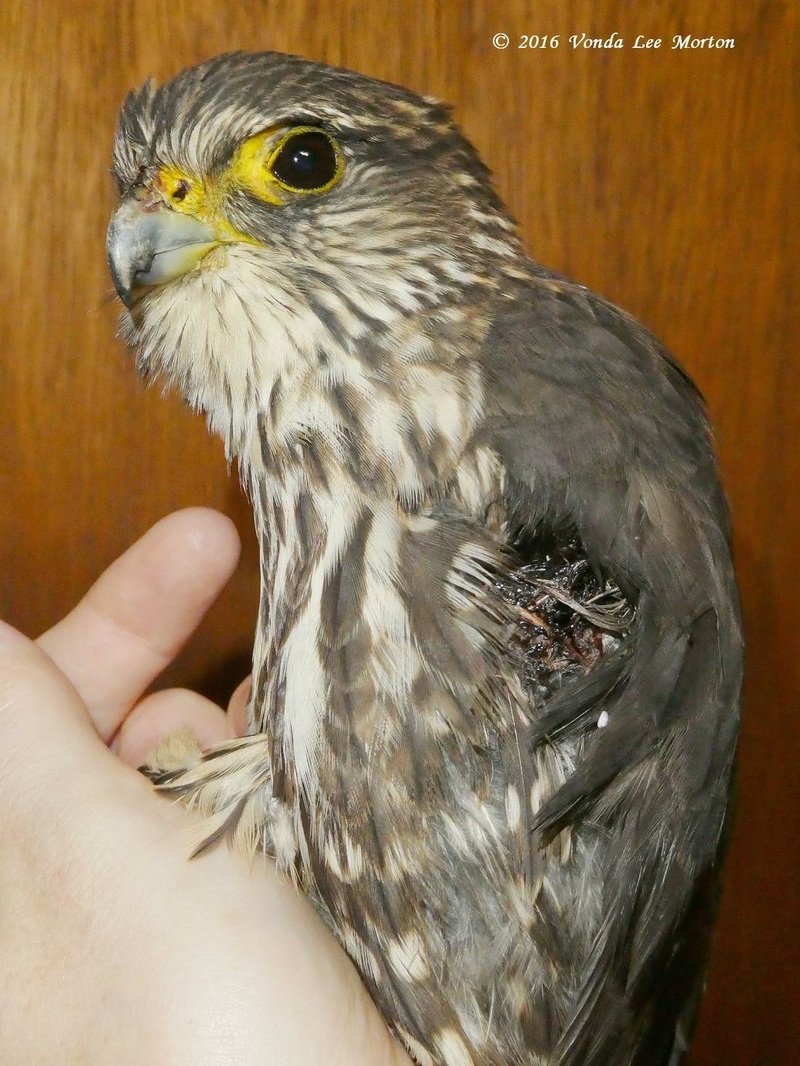
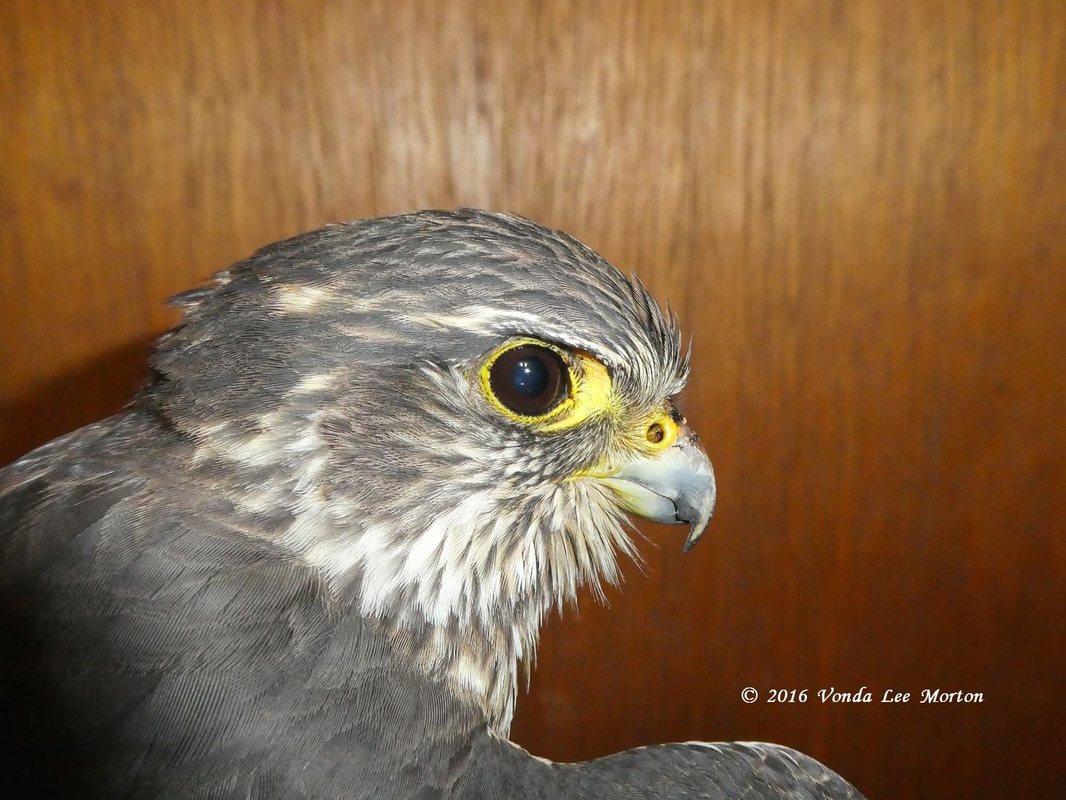
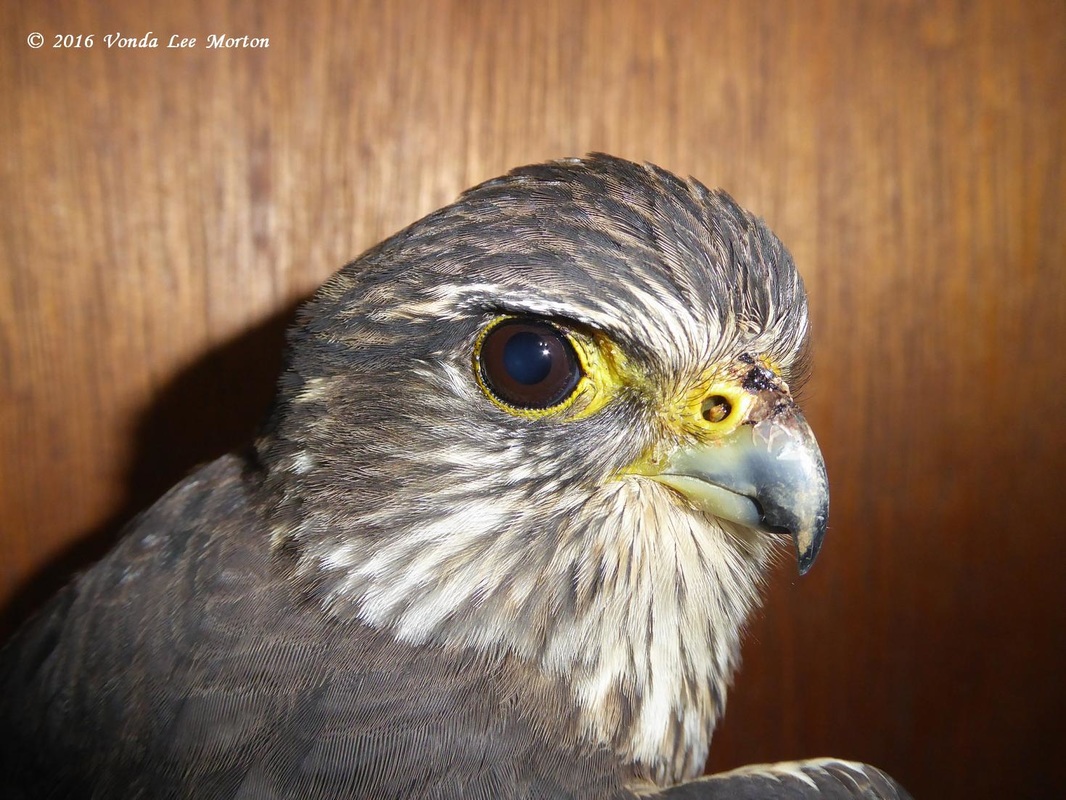
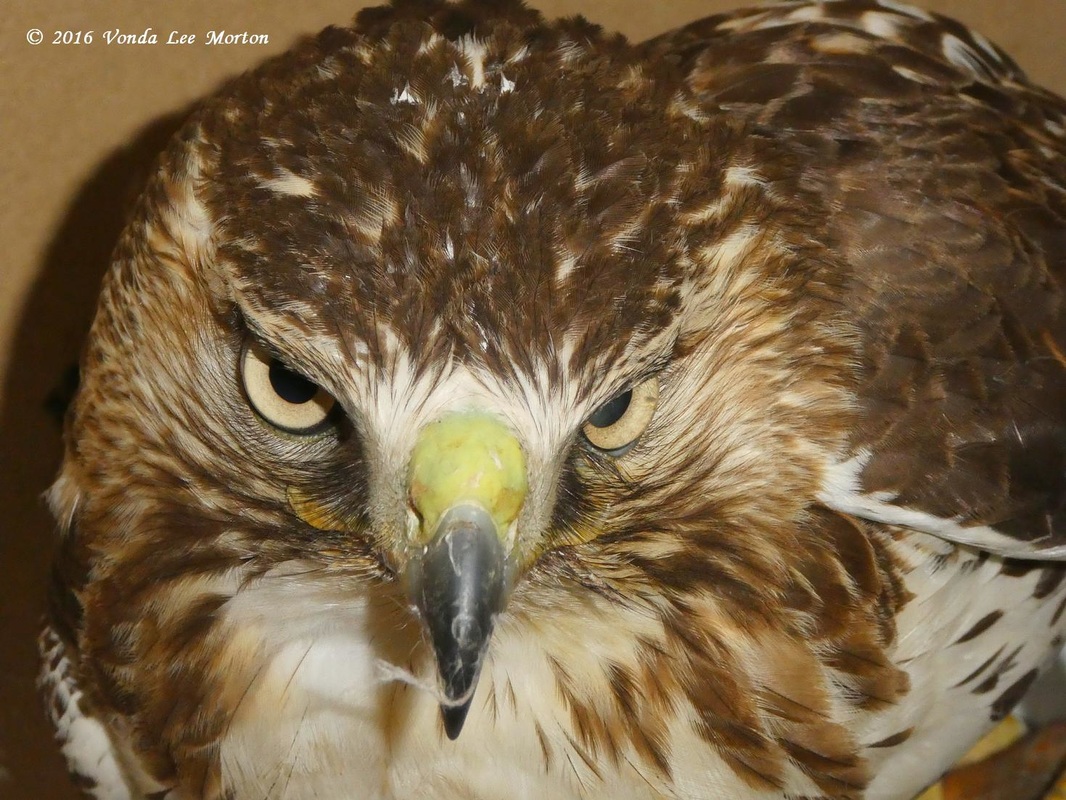
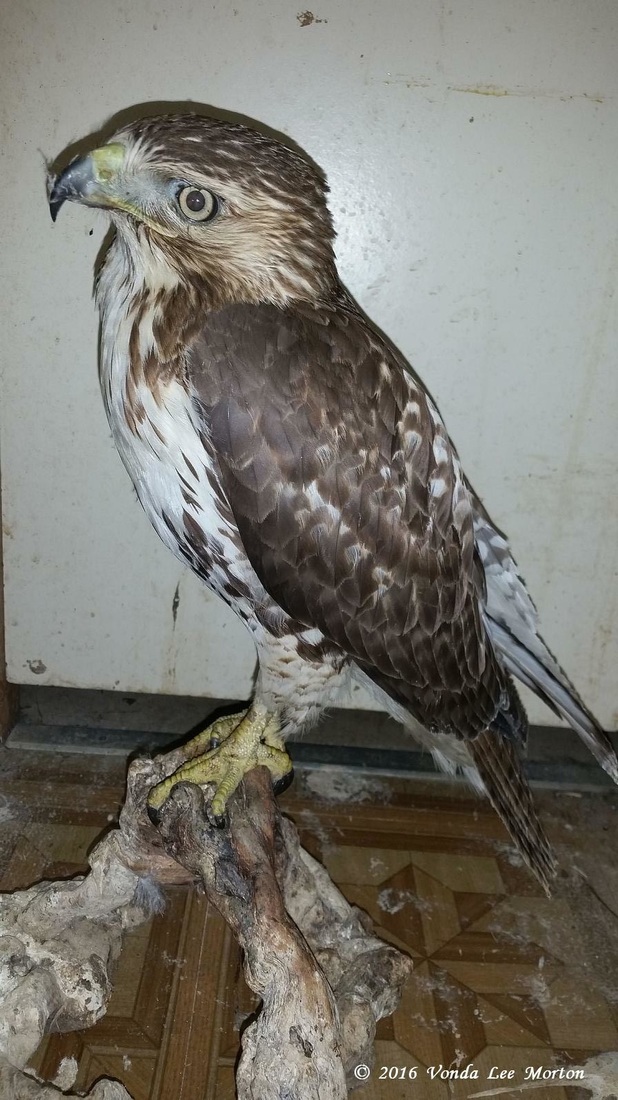
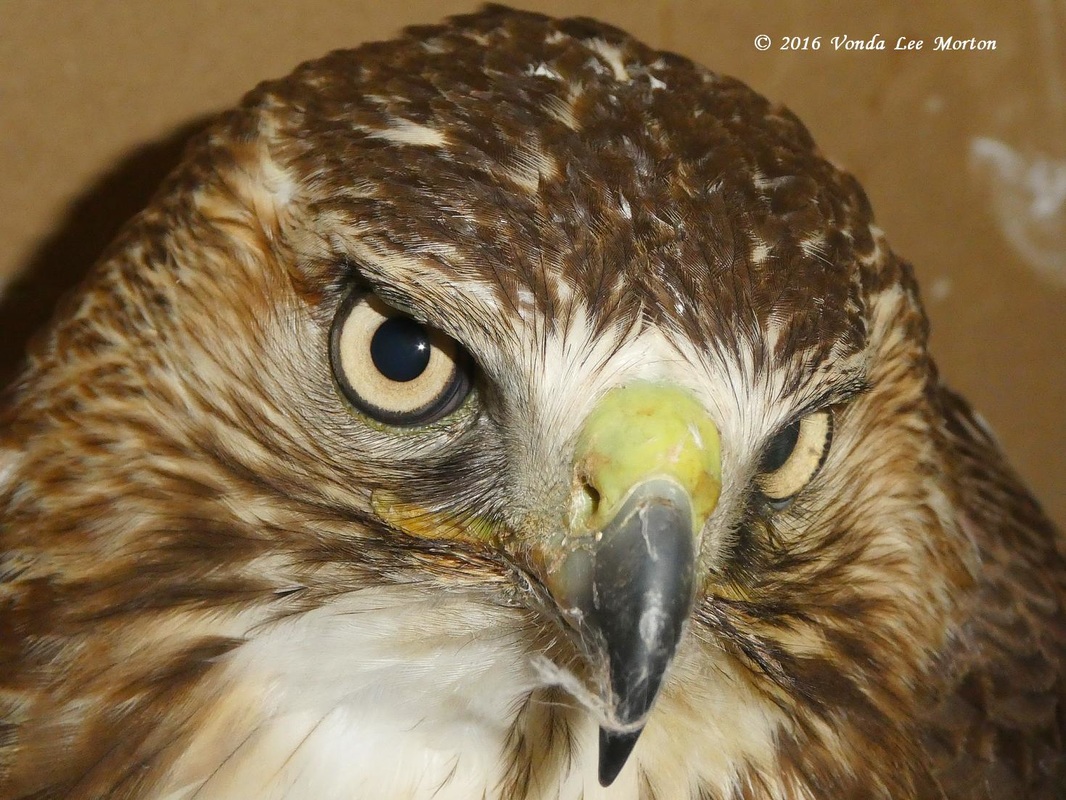
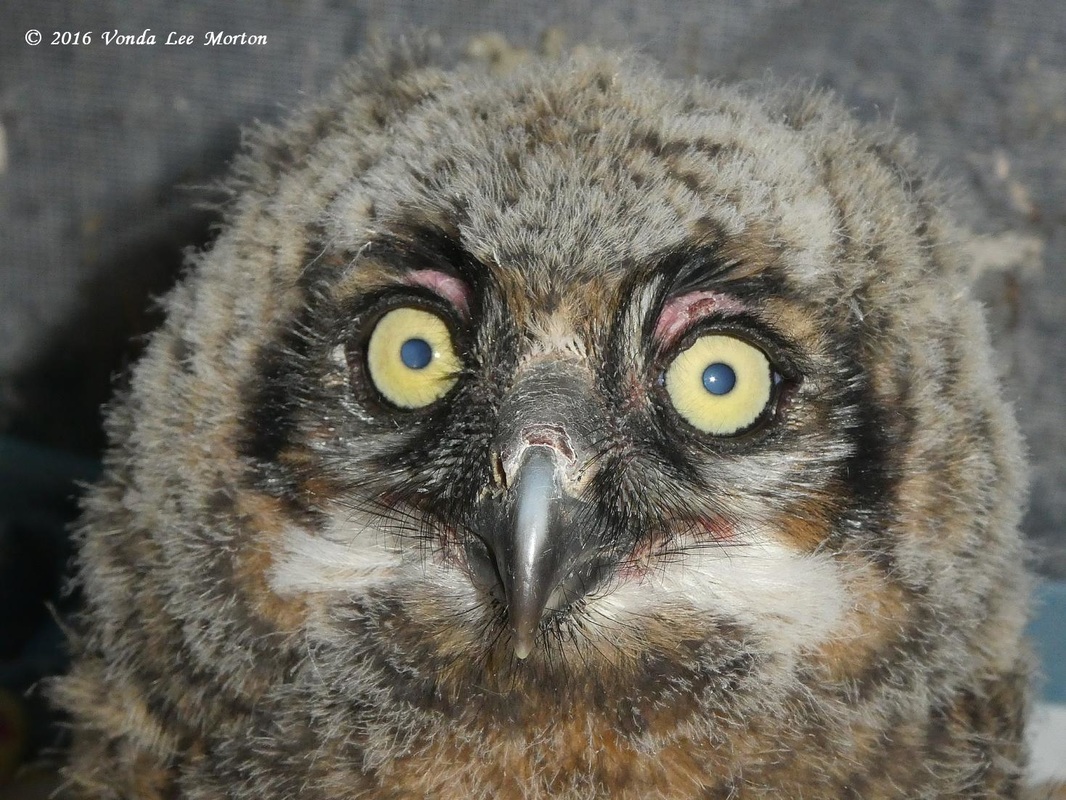
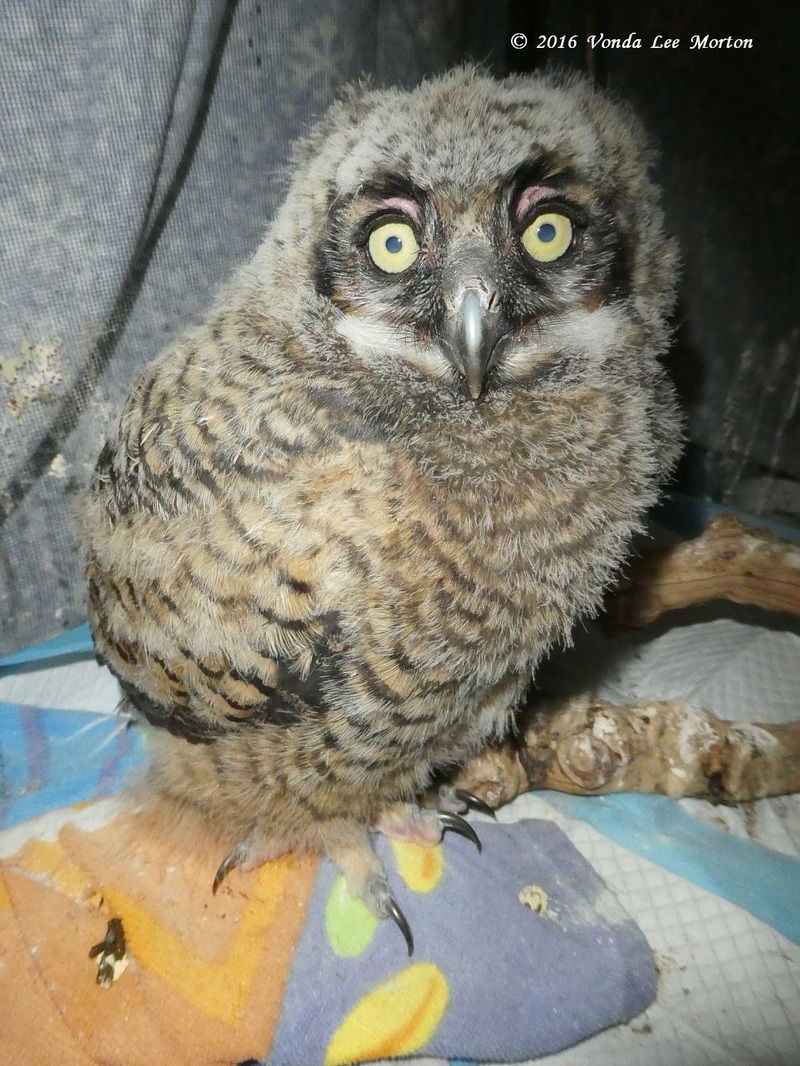
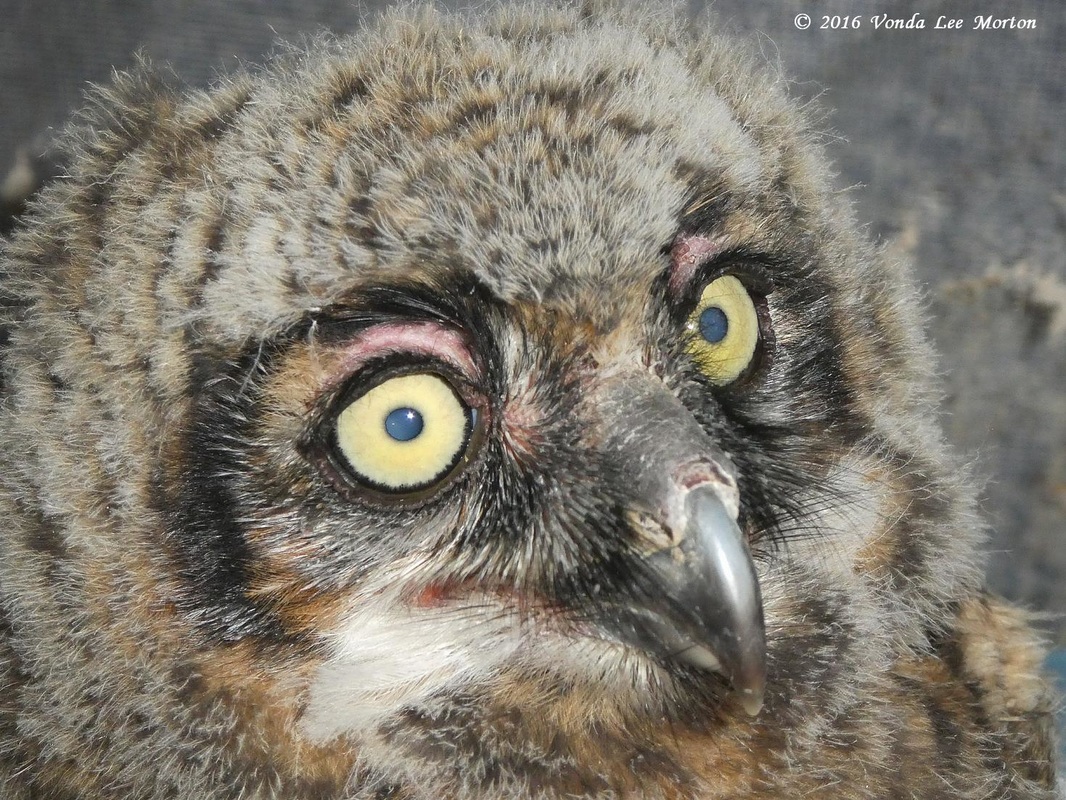
 RSS Feed
RSS Feed
